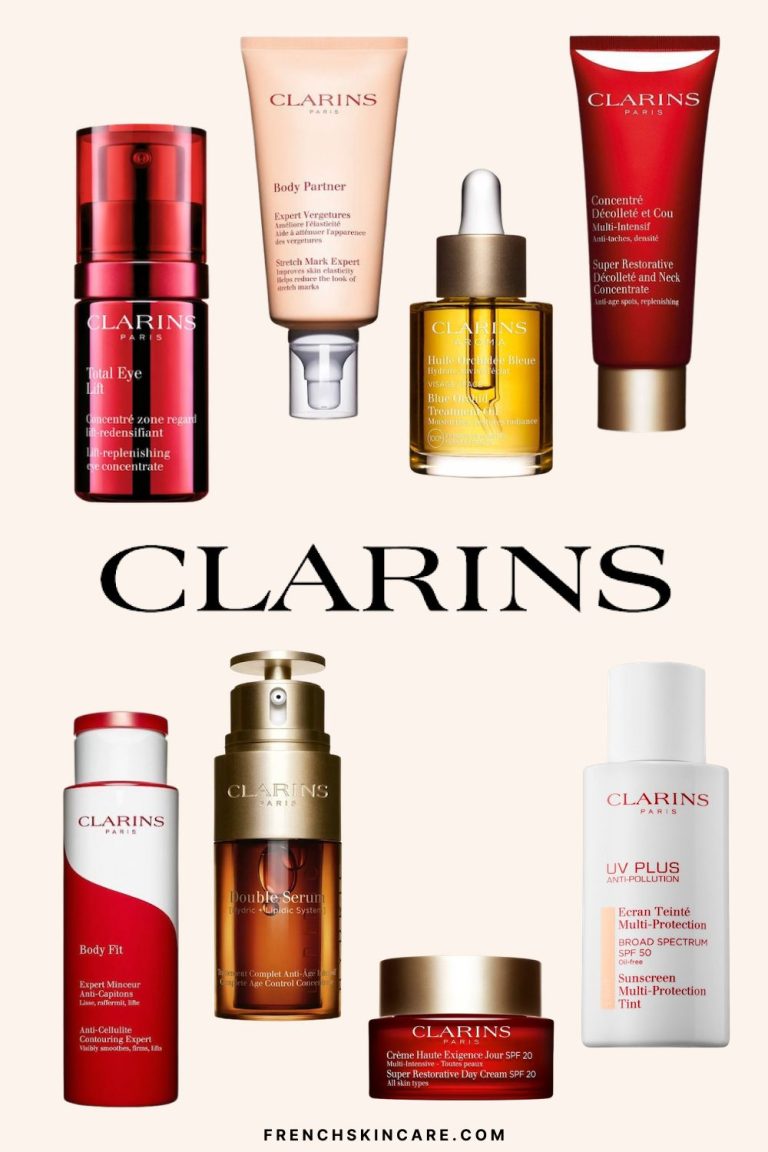When exploring the world of skincare, the brand Clarins often emerges as a topic of discussion, distinguished by its French heritage and a reputation for luxury. As discerning consumers seek effective and ethical options, the question arises: Is Clarins a good brand? To answer this, we must delve into various facets of the brand, including its product offerings, ingredient philosophy, ethical practices, and overall effectiveness.
Brand Heritage and Philosophy
Founded in 1954 by Jacques Courtin-Clarins, Clarins has established itself as a pioneer in the skincare industry. The brand revolves around the notion of “natural beauty.” This was a revolutionary concept for its time, emphasizing the use of plant-based extracts and oils. The conviction that skincare should not merely mask imperfections but enhance natural radiance has guided the company’s development for decades. This commitment to botanical ingredients resonates deeply with consumers looking for more holistic approaches to skincare.
Product Range: Diversified Offerings
Clarins provides an extensive product portfolio, catering to various skin types and concerns. From moisturizers and serums to cleansers and masks, each product is crafted to address specific needs. One of their standout product lines is the Double Serum, renowned for its ability to tackle multiple signs of aging. Incorporating over 21 plant extracts, it is a manifestation of the brand’s botanical philosophy.
Additionally, the Hydra-Essentiel range focuses on hydration, utilizing the powerful properties of leaf of life extract. This approach to product formulation—where hydration is pivotal—illustrates Clarins’ attentiveness to essential skin functions and environmental factors affecting skin health.
For those grappling with problematic skin, the Clear Out line aims to combat blemishes while maintaining hydration levels. Such ranges showcase Clarins’ versatility and commitment to providing solutions that cater to diverse skincare needs.
Ingredient Integrity: What’s Inside the Jar?
One significant aspect that can define a skincare brand’s effectiveness is its ingredient integrity. Clarins has made strides in selecting high-quality, natural ingredients that are both effective and gentle. Their dedication to research and sustainable farming practices amplifies their reputation. Ingredients such as organic chamomile, aloe vera, and shea butter are frequently infused in their formulas, offering nourishment while minimizing potential irritation.
It’s worth noting, however, that Clarins does incorporate synthetic components in some products. While synthetic ingredients can indeed enhance product stability and efficacy, consumers with an aversion to them may find this disconcerting. Clarins claims transparency about its formulations, which is a credit to the brand. Users can easily access detailed ingredient lists on their packaging and website, allowing for informed choices.
Skincare Efficacy: Do the Products Work?
Anecdotal evidence and customer reviews suggest that many users experience positive results after integrating Clarins products into their routines. The Double Serum, for instance, garners acclaim for its transformative impact, with users highlighting significant improvements in skin texture and radiance. Other products, such as the Clarins Flash Balm, are praised for their immediate brightening effects, making them favorites before special events.
Nonetheless, it is crucial to recognize that individual responses can vary widely. What works wonders for one person may not yield the same results for another, an essential principle inherent to skincare. Factors such as skin type, environmental conditions, and lifestyle choices play an undeniable role in the effectiveness of a product.
Ethical Practices: Sustainability and Animal Welfare
In an era of increasing awareness regarding environmental impact and animal welfare, Clarins has taken significant steps to promote sustainability. The brand has committed to responsible sourcing of its ingredients, focusing on sustainable agriculture practices that protect biodiversity. Their “Plant for the Planet” initiative exemplifies this commitment, aiming to promote reforestation efforts.
Moreover, Clarins has actively moved towards a cruelty-free status. They have vowed to refrain from animal testing in their products, aligning themselves with the burgeoning ethical skincare movement. For consumers who prioritize such values, Clarins positions itself as a conscientious choice amidst luxury skincare offerings.
Price Point: Luxury or Worth the Investment?
Clarins products are often categorized as high-end, prompting many consumers to evaluate the cost-to-value ratio. While it is true that you can find more affordable alternatives on the market, the luxury associated with Clarins isn’t merely a price tag; it reflects the brand’s investment in research, ingredient sourcing, and ethical practices. However, the higher price point can deter those seeking budget-friendly options or those uncertain about committing to premium skincare without trial. The widespread availability of sample sizes or trial kits, however, provides an accessible entry point for potential buyers.
Final Thoughts: Is Clarins a Good Brand?
The evaluation of whether Clarins is a good brand ultimately rests upon individual criteria and personal experiences. Its commitment to natural ingredients, sustainability, and innovative formulations indeed makes it a formidable contender in the luxury skincare realm. However, considerations regarding price, ingredient transparency, and individual skin responses should not be overlooked.
In conclusion, for those who appreciate a blend of luxurious formulation, effective results, and ethical practices, Clarins presents a compelling option. However, as with any skincare regimen, the discovery journey must be tailored to one’s unique skin needs, preferences, and values. Considering these factors, the decision to invest in Clarins products becomes more nuanced, warranting careful contemplation from the consumer.

